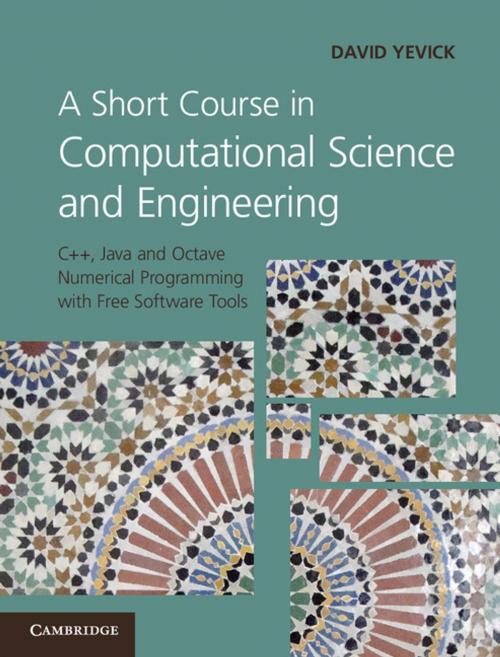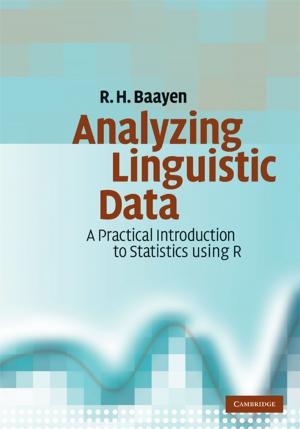A Short Course in Computational Science and Engineering
C++, Java and Octave Numerical Programming with Free Software Tools
Nonfiction, Science & Nature, Science, Physics, Mathematical Physics, Mathematics, Computers, General Computing| Author: | David Yevick | ISBN: | 9781139234009 |
| Publisher: | Cambridge University Press | Publication: | May 24, 2012 |
| Imprint: | Cambridge University Press | Language: | English |
| Author: | David Yevick |
| ISBN: | 9781139234009 |
| Publisher: | Cambridge University Press |
| Publication: | May 24, 2012 |
| Imprint: | Cambridge University Press |
| Language: | English |
Building on his highly successful textbook on C++, David Yevick provides a concise yet comprehensive one-stop course in three key programming languages, C++, Java and Octave (a freeware alternative to MATLAB). Employing only public-domain software, this book presents a unique overview of numerical and programming techniques, including object-oriented programming, elementary and advanced topics in numerical analysis, physical system modelling, scientific graphics, software engineering and performance issues. Compact, transparent code in all three programming languages is applied to the fundamental equations of quantum mechanics, electromagnetics, mechanics and statistical mechanics. Uncommented versions of the code that can be immediately modified and adapted are provided online for the more involved programs. This compact, practical text is an invaluable introduction for students in all undergraduate- and graduate-level courses in the physical sciences or engineering that require numerical modelling, and also a key reference for instructors and scientific programmers.
Building on his highly successful textbook on C++, David Yevick provides a concise yet comprehensive one-stop course in three key programming languages, C++, Java and Octave (a freeware alternative to MATLAB). Employing only public-domain software, this book presents a unique overview of numerical and programming techniques, including object-oriented programming, elementary and advanced topics in numerical analysis, physical system modelling, scientific graphics, software engineering and performance issues. Compact, transparent code in all three programming languages is applied to the fundamental equations of quantum mechanics, electromagnetics, mechanics and statistical mechanics. Uncommented versions of the code that can be immediately modified and adapted are provided online for the more involved programs. This compact, practical text is an invaluable introduction for students in all undergraduate- and graduate-level courses in the physical sciences or engineering that require numerical modelling, and also a key reference for instructors and scientific programmers.















